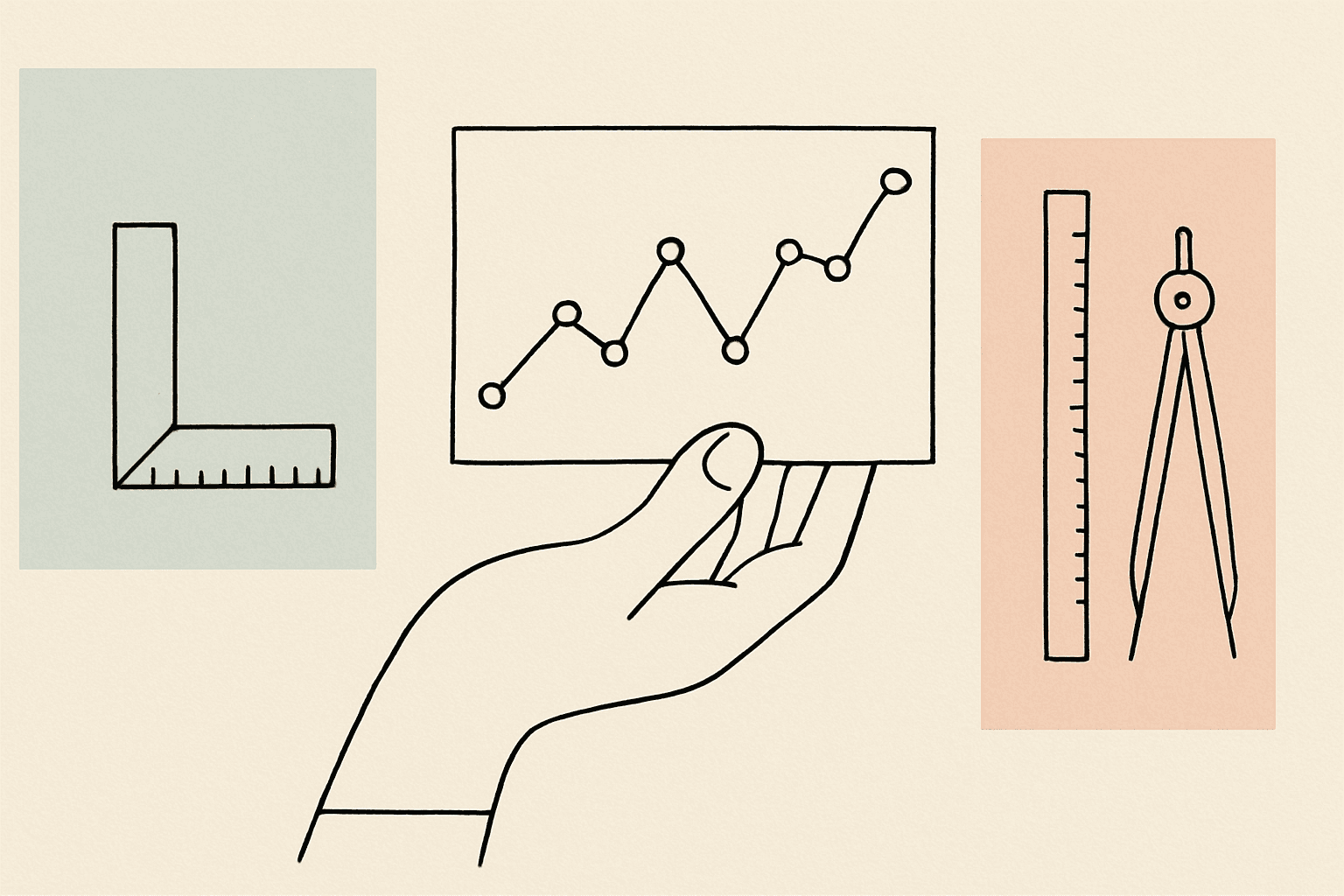HIPAA Compliance ABA Documentation: Your $9.77M Protection Guide

Data breaches in healthcare cost an average of $9.77 million per incident in 2024—down from $10.93 million in 2023, but still the highest of any industry for the 14th consecutive year. For ABA clinics handling sensitive client information daily, HIPAA compliance ABA documentation isn't just about avoiding fines. It's about protecting the trust families place in you and keeping your doors open.
Here's the thing: while other industries struggle with cybersecurity, behavioral health providers face unique challenges that generic compliance advice doesn't address. You're dealing with RBTs in homes, BCBAs supervising remotely, and detailed behavioral data that insurance companies scrutinize. One slip-up—an unencrypted email or unsecured tablet—can trigger investigations that cost more than most clinics make in a year.
Why ABA Clinics Can't Use Cookie-Cutter HIPAA Approaches
You've probably seen those generic HIPAA checklists floating around online. But here's what they don't tell you: running an ABA clinic isn't like managing a traditional medical office. Your team works across multiple locations, handles extensive behavioral data collection, and deals with complex family dynamics around privacy rights.
As a HIPAA-covered entity, you must comply with three core requirements:
- Privacy Rule: Controls how Protected Health Information (PHI) can be used and shared
- Security Rule: Demands physical, technical, and administrative safeguards for electronic PHI
- Breach Notification Rule: Sets strict timelines for reporting when PHI gets compromised
The ABA Twist: Unlike other healthcare providers, your staff documents behavior in real-time across unpredictable environments. That creates privacy vulnerabilities most compliance programs ignore entirely.
Real-World ABA Documentation Challenges (And How to Handle Them)
Let me walk you through the compliance nightmares I see ABA clinic owners dealing with every week:
The Home Visit Dilemma Your RBT is collecting data on an iPad in a client's living room. Siblings are wandering around, grandparents are asking questions, and the device needs to sync notes back to your system. How do you maintain HIPAA compliance when you can't control the environment?
Solution: Use devices with automatic screen locks (15-minute maximum), require encrypted transmission, and train staff on positioning screens away from unauthorized viewers.
Multi-Site Supervision Headaches BCBAs supervising across multiple locations need real-time access to session notes, behavioral data, and progress reports. Email isn't secure enough, but complicated systems slow down clinical decision-making.
Practical Fix: Implement HIPAA-compliant platforms with role-based access controls. Your BCBA gets supervisory access, RBTs see only their assigned clients, and billing staff access only what they need for claims processing.
The Documentation Timeline Squeeze Insurance companies want detailed session notes, but compliance requirements for behavioral health documentation demand accuracy over speed. Most practices aim for 24-48 hour completion, but what happens when life gets in the way?
Your ABA HIPAA Checklist: The Essentials That Actually Matter
Skip the overwhelming 47-point checklists. Focus on these high-impact compliance areas that your daily operations actually depend on:
Administrative Safeguards That Work in Real Life
- Appoint a Privacy Officer who understands ABA workflows (not just generic healthcare)
- Conduct annual risk assessments that include mobile devices and home-based services
- Document HIPAA staff training ABA-specific scenarios with role-playing exercises
- Create incident response procedures for common ABA situations (lost device in client home, accidental disclosure during supervision)
- Review policies whenever you add new technology or change service locations
Physical Security for Mobile Operations
- Secure all paper files with locks, even in vehicles during transport
- Install automatic screen locks on all tablets and laptops
- Train staff on "screen privacy" positioning in public spaces
- Control access to any physical servers or networking equipment
- Implement clean desk policies, especially important for shared office spaces
Technical Safeguards Made Simple
- Encrypt everything—devices, email, file transfers, cloud storage
- Use multi-factor authentication on all systems handling PHI
- Enable audit logs to track who accessed what information
- Install and maintain anti-malware software with automatic updates
- Test your backup and recovery systems every six months
Documentation Standards That Satisfy Auditors
- Complete session notes within your payer's required timeframe (usually 24-48 hours)
- Include specific interventions, measurable client responses, and objective data
- Use secure, HIPAA-compliant documentation platforms with proper encryption
- Limit access through role-based permissions
- Maintain reliable backup systems with tested recovery procedures
Building Your HIPAA Staff Training ABA Program
Generic HIPAA training doesn't work for ABA staff. Why? Because your team faces situations that hospital nurses never encounter. Your people need scenarios they actually face every day:
RBT Training Essentials:
- Recognizing PHI in all its forms (not just obvious medical info)
- Secure note-taking techniques in client homes and community settings
- What to do when family members ask about other clients
- Proper handling of behavioral crisis documentation
BCBA-Focused Training:
- Supervision documentation requirements and electronic signature protocols
- Secure telehealth practices for remote supervision
- Handling parent requests for detailed behavioral data while protecting other family members' privacy
Administrative Staff Priorities:
- Billing compliance and insurance reporting procedures
- Breach response protocols with clear escalation timelines
- Business Associate Agreement management and vendor oversight
Keep detailed training records showing completion dates, topics covered, and competency assessments. With enforcement activity intensifying, these records often determine whether violations result in minor corrections or significant penalties.
ABA Recordkeeping Standards: Retention Rules You Need to Know
Here's what often surprises ABA clinic owners: HIPAA doesn't actually set medical record retention timeframes. Those come from state laws and payer contracts, making recordkeeping standards more complex than you might expect.
Typical Requirements:
- Adult records: 5-10 years from last service date
- Minor records: Until age of majority plus additional years (varies by state—some require until age 23)
- Medicaid: Usually 7 years minimum from date of service
But wait—there's more to consider:
What You Must Retain:
- All session notes and behavioral data
- Treatment plans and updates
- Insurance authorizations and communications
- Staff credentials and supervision records
- Any correspondence related to the client's care
Pro Tip: Even after you can legally destroy records, consider the practical implications. Families sometimes return for services years later, and having historical data can significantly improve treatment planning.
Technology That Actually Simplifies Compliance
The right tools can automate compliance while improving your clinical operations. Look for platforms offering:
- Native HIPAA compliance with signed Business Associate Agreements
- End-to-end encryption that works automatically in the background
- Role-based access so RBTs can't see billing info and administrative staff can't access clinical notes
- Audit trails that document every login, access, and modification
- Mobile optimization with secure offline capabilities for unstable internet environments
Praxis Notes provides comprehensive HIPAA-compliant documentation tools designed specifically for behavioral health workflows. Our platform handles encryption, access controls, and audit logging automatically, so you can focus on clinical excellence instead of compliance paperwork.
When Things Go Wrong: Understanding HIPAA Violations
Let me be direct: most HIPAA violations in ABA practices happen because of simple mistakes, not malicious intent.
Common ABA Practice Violations:
- Discussing clients in semi-public areas where others might overhear
- Using unsecured email for sharing behavioral data with schools
- Leaving session notes visible on desks in shared spaces
- RBTs using personal devices without proper security controls
The Financial Reality: HIPAA violations can range from warning letters to multi-million dollar settlements. Current penalty structures scale based on perceived negligence and scope of violations, with some recent cases resulting in settlements exceeding $1 million for repeated non-compliance.
Breach Response Steps:
- Stop the breach immediately if ongoing
- Document what happened, when, and who was affected
- Notify your Privacy Officer within hours, not days
- Determine if notification to clients and authorities is required
- Review and update policies to prevent recurrence
HIPAA Compliance FAQs for ABA Clinics
Q: Do I need a Business Associate Agreement with my documentation app? Absolutely. Any third-party service handling PHI requires a signed BAA. This includes EMR systems, billing companies, cloud storage providers, video conferencing platforms, and even email services. No exceptions.
Q: Can RBTs take notes on personal phones or tablets? Personal devices create significant liability. If you allow it, those devices must meet the same security standards as company equipment—encryption, remote wipe capability, access controls, and regular security updates. Most practices find it safer and more cost-effective to provide dedicated devices.
Q: How long do we keep ABA therapy records? Retention periods vary by state and payer contracts, but expect 7-10 years for adults and until the age of majority plus additional years for minors. Some states require retention until age 23 for pediatric behavioral health records.
Q: What counts as a HIPAA breach in ABA settings? Any unauthorized access, use, or disclosure of PHI. Common examples include unencrypted emails, lost devices, discussing clients where others can hear, or accidentally sending data to the wrong recipient.
Q: How often should we update our HIPAA policies? Review annually at minimum, plus whenever you implement new technology, change service locations, or hire new staff roles. Recent regulatory updates require policy reviews to ensure continued compliance with evolving standards.
Q: Can parents access all their child's ABA therapy records? Generally yes, but there are exceptions. Under HIPAA, patients (or their representatives) have the right to access their medical records within 30 days of request. However, psychotherapy notes may have different access rules, and state laws sometimes provide additional guidance for mental health records involving minors.
Your Next Steps: Building Unshakeable Compliance
HIPAA compliance isn't about perfection—it's about demonstrating reasonable efforts to protect client information and having systems in place to catch and correct problems quickly.
Start Here:
- Audit your current practices using the checklist above—honestly assess where gaps exist
- Update your risk assessment to include all locations where your staff provide services
- Schedule role-specific training for your entire team within the next 30 days
- Evaluate your documentation technology for security vulnerabilities and ease of use
- Review all vendor agreements to ensure current Business Associate Agreements are in place
The investment in proper HIPAA compliance pays dividends beyond avoiding violations. Families trust providers who take their privacy seriously, insurance companies prefer working with compliant practices, and your staff can focus on clinical work instead of worrying about security gaps.
Ready to streamline your compliance without sacrificing clinical quality? Explore how Praxis Notes can transform your documentation with automated HIPAA compliance built specifically for behavioral health practices.
Related Resources
Explore more helpful content on similar topics

RBT Measurement Study Guide: Master 13 Essential Skills for 2025 Exam Success
Learn the essential RBT measurement study guide skills, including continuous measurement and ABA data collection to boost your exam success and clinical practice.

Master ABA CPT Codes 97153-97158: Avoid Costly Audit Findings in 2025
Learn how to navigate ABA therapy CPT codes 97153–97158 for compliant billing, audit-proof documentation, and maximizing 2025 ABA insurance reimbursements.
![ABA Principles and Techniques Every RBT Must Know [2025] Minimal line illustration of hands organizing geometric shapes, representing ABA principles and techniques.](/_next/image?url=https%3A%2F%2Fl0qdfezqmw69fxn5.public.blob.vercel-storage.com%2Fresources%2Faba-principles-techniques-guide-1756047137875.png&w=3840&q=75)
ABA Principles and Techniques Every RBT Must Know [2025]
Learn how ABA principles and techniques empower RBTs and BCBAs to improve client outcomes with evidence-based strategies like positive reinforcement and data collection.